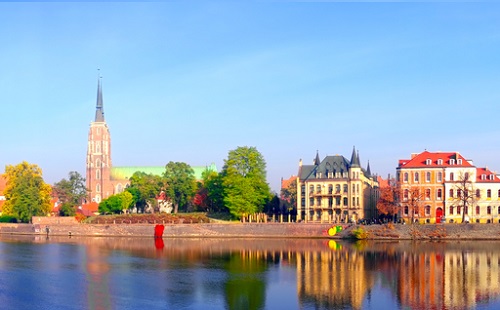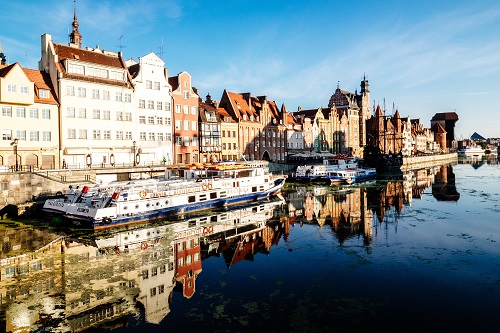Looking after your mental health is important wherever you are, but it can become particularly important when you are living in a new country and are far from friends and family. If you are an expat living in Poland, then note that there is still some stigma around mental health issues, and many Poles are embarrassed to discuss the topic. However, attitudes are changing, particularly among younger people.The Mental Health Care Act, introduced in 1994, places an emphasis on prevention, treatment and rehabilitation, rather than institutionalisation, and resources have been expanding slowly over the succeeding years. In 2010, a further National Mental Health Care Programme was brought in, but it is not yet fully implemented. At time of writing, steps are being taken to create mental health centres across the country, but the public health system remains underfunded and understaffed, and waiting times can be long.
Poland uses the International Classifications of Mental Health Disorders (ICD), rather than the DSM (Diagnostic and Statistical Manual of Mental Disorders), which you may be more familiar with if you are from the U.S.A. The definitions cover organic disorders (such as Alzheimer’s), substance abuse and addiction, schizo-effective illness, mood disorders, stress-related illness and phobias, eating disorders and other behavioural syndromes with physical components, personality disorders, learning difficulties and challenges, and childhood and adolescent mental health problems. All of these are covered by the health service and, in many cases, by private practitioners also.

You may already be familiar with some of the steps you can take to safeguard your mental health, but if not, you can find a range of resources online. For example, it is recommended that you take regular exercise, do activities you enjoy, and make time to relax. Poland is a good place for walking, with many easily accessible public parks and gardens. Cycling is popular, and there are good cycle paths in most cities, as well as forest and river trails. Also in cities, you will find plenty of gyms and exercise classes. In major cities, you will find yoga, meditation and tai classes, and these are also offered online.
If you find yourself experiencing more serious mental health issues, or if you feel like you cannot cope alone, then there are services you can access, both via the Polish national healthcare scheme and via private providers.
Mental health services provided on the Polish National Health Fund (NHF)
The National Health Fund )NHF) is a tax-based insurance system that provides healthcare services in cooperation with regional authorities. Most mental healthcare services in Poland are funded by the NHF.
Severe mental illnesses are usually treated for free, including hospitalisation and talking therapies, as well as medication. As in most countries, funding is an issue for mental health services, and, whenever possible, patients are treated in the community.
Your first port of call to access mental health services via the NHF will be your general practitioner. GPs are trained in psychiatry, and they can prescribe and refer you to further mental healthcare services, including psychologists and psychotherapists, as well as community healthcare teams. The NHF will pay for up to 12 sessions with a therapist. Be aware, however, that waiting times are often long, and many Poles opt to go private for this reason.
Should you require hospitalisation, most mental healthcare is delivered in psychiatric hospitals, though some general hospitals also have small psychiatric wards. Sadly, psychiatric hospitals are underfunded. There are often delays, and wards can be old-fashioned and lack a full complement of staff. You may also experience a lack of privacy. On discharge, you should be referred to a day clinic or community services, although, again, delays are likely, particularly in rural areas.
Private mental healthcare resources
While many Poles prefer to go to private healthcare providers, where mental health is concerned, most medical provision comes via the NHF or charitable institutions. If you would prefer a private hospital, you may have to look outside the country.

Psychology and psychotherapy are, however, growth professions, and you should find it relatively easy to find a private practitioner. The most common specialisms are psychoanalysis and psychodynamic therapy. Both are talking therapies, in which, with the help of your therapist, you work through conscious and unconscious fears, conflicts and issues. However, while psychoanalysis emphasises the relationship between patient and therapist, psychodynamic therapy focuses on your relationship with the external world.
It is worth speaking to a number of therapists before you commit to a course of treatment, so that you can find someone with whom you feel comfortable and safe. English-speaking therapists are available in major cities. If you live somewhere more remote, you may have to arrange treatment online.
There is no single professional body that regulates psychologists and psychotherapists in Poland, nor is there any legal requirement for psychotherapists to possess professional qualifications. It is therefore very important that you take care when selecting a therapist. Look for one registered with the Polish Psychiatric Association, the Association of Polish Psychologists, the European Foundation for Psychologists and Analysts, or the European Health Psychology Society. Fees vary, depending on where you are and on specialisms, but expect to pay around 150 to 160 zlotys ($40 to £30) per session.
Useful links
There are various websites that you may find useful, including:
• CABA.org.uk – offering counselling and emotional support
• European Foundation for Psychologists and Analysts – contains a directory of psychologists with practices and offices in Warsaw
• Polish Psychologists Association – information in Polish

